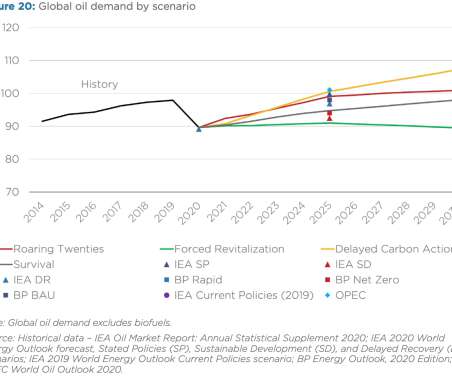Study finds global oil demand likely to grow despite pandemic, climate policies
Green Car Congress
JULY 13, 2021
Columbia University’s Center on Global Energy Policy and the University of California, Davis Institute of Transportation Studies analyzed four scenarios to understand how COVID-19 and other political, economic, social and technological drivers may impact transportation activity and global oil demand.












Let's personalize your content